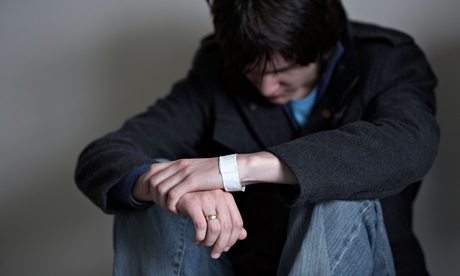George Parker and Chris Giles in The FT
As he battled to save his job this month, Boris Johnson warned his MPs not get into “some hellish, Groundhog Day debate about the merits of belonging to the single market”. Brexit, he warned his mutinous party in a sweaty House of Commons meeting room, was settled.
Later that day, Johnson limped to victory in a confidence vote, but only after 41 per cent of his MPs had voted to oust him from Downing Street. He is safe for now but the defining project of his premiership — Brexit — still hangs like a cloud over Britain’s fragile economy.
Johnson may not want his party “relitigating” Brexit but neither does Sir Keir Starmer, leader of the opposition Labour party, around a third of whose supporters voted Leave in the 2016 referendum. Nor does Andrew Bailey, governor of the Bank of England. Rishi Sunak, the chancellor, would rather talk about something else. Brexit has become the great British taboo.
But as the sixth anniversary of the UK’s vote to leave the EU approaches, economists are starting to quantify the damage caused by the erection of trade barriers with its biggest market, separating the “Brexit effect” from the damage caused by the Covid-19 pandemic. They conclude that the damage is real and it is not over yet.
The UK is lagging behind the rest of the G7 in terms of trade recovery after the pandemic; business investment, seen by Johnson and Sunak as the panacea to a poor growth rate, trails other industrialised countries, in spite of lavish Treasury tax breaks to try to drive it up. Next year, according to the OECD think-tank, the UK will have the lowest growth in the G20, apart from sanctioned Russia.
The Office for Budget Responsibility, the official British forecaster, has seen no reason to change its prediction, first made in March 2020, that Brexit would ultimately reduce productivity and UK gross domestic product by 4 per cent compared with a world where the country remained inside the EU. It says that a little over half of that damage has yet to occur.
That level of decline, worth about £100bn a year in lost output, would result in lost revenues for the Treasury of roughly £40bn a year. That is £40bn that might have been available to the beleaguered Johnson for the radical tax cuts demanded by the Tory right — the equivalent of 6p off the 20p in the pound basic rate of income tax.
Despite these sobering figures, Johnson’s complaints about the prospect of “relitigating” Brexit was exaggerated, intended to portray himself as the victim of a putative plot by pro-Remain MPs. In fact, British politicians — and the wider country — are still traumatised by the bitter Brexit saga, and deeply unwilling to revisit it.
Still, this month has seen the first stirrings of a debate that until now has been buried as the evidence of Brexit-induced economic self-harm starts to pile up. Few are talking about reversing Brexit altogether, but another question is being asked: should the UK start to explore with Brussels ways of softening its edges?
Show, don’t tell
Downing Street insisted this week it was “too early to pass judgment” on whether Brexit was having a negative impact on the economy, which could be heading into a recession. “The opportunities Brexit provides will be a boon to the UK economy in the long run,” Johnson’s spokesman said.
Both Johnson and Sunak insist that it is hard at this stage to separate Brexit’s economic impact from the shock of Covid. In the meantime, the prime minister promotes the “benefits of Brexit”, such as new trade agreements with Australia and New Zealand and the freedom for the UK to set its own rules.
Sunak has promised a reform of rules in the City of London, including reforming the EU’s Solvency II rules to allow insurers to spend more money on infrastructure projects. He has announced eight new freeports with special tax privileges.
But economists have not yet been able to find any significant positive impacts of these policies. Some, including Johnson’s patriotic promise to put a “crown stamp” on pint glasses in pubs and to allow traders to sell their wares in pounds and ounces, are primarily symbolic.
Critics of government Brexit policy are routinely derided. Suella Braverman, attorney-general, last week accused the ITV presenter Robert Peston of “Remainiac make-believe” after he challenged her over the government’s unilateral plan to rip up the Brexit treaty relating to Northern Ireland. Braverman claimed the so-called Northern Ireland protocol had left the region “lagging behind the rest of the UK”. In fact, Northern Ireland (the only area of the UK to remain in the EU’s single market for goods) is the best performing part of the country, apart from London.
When Bailey appeared before the House of Commons treasury committee in mid May, the BoE governor acknowledged that his predecessor Mark Carney had made himself “unpopular” for saying Brexit would have a negative effect on trade, but that the bank held to that view.
Kevin Hollinrake, a Tory member of the committee, says Bailey was trying to avoid becoming a political target and was “deliberately avoiding” talking about Brexit. “It’s a singular issue for the UK,” the MP says. “We have changed our immigration rules. It’s about non-tariff barriers. You’ve got to be willing to look at what’s happening on the ground.”
While some gloomy predictions have failed to materialise, such as former chancellor George Osborne’s 2016 warning of a recession immediately after a Leave vote, there is growing evidence that Brexit is causing more lasting damage to UK economic prospects.
Ministers are becoming more reluctant to proclaim the economic upsides of Brexit. Kwasi Kwarteng, business secretary, was asked last week at the FT Global Boardroom to list some Brexit benefits. He focused on the UK’s ability to respond swiftly to Russian aggression in Ukraine — “it has substantial benefits particularly in international policy” — rather than on business. Sunak’s allies say the chancellor’s approach is to “show, not tell” on Brexit, pushing through City regulatory reforms rather than giving boosterish speeches on its economic merits.
The fallout in data
The first and most obvious economic blow delivered by Brexit came when sterling fell almost 10 per cent after the referendum in June 2016, against currencies that match the UK’s pattern of imports. It did not recover. This sharp depreciation was not followed by a boom in exports as UK goods and services became cheaper on global markets, but it did raise the price of imports and pushed up inflation.
By June 2018, a team of academic economists at the Centre for Economic Policy Research calculated that there had been a Brexit inflation effect, raising consumer prices by 2.9 per cent, with no corresponding increase in wages.
Some households, such as those relying on state pensions, were compensated in higher benefits, but the CEPR team found no overall offset with higher incomes. “The Brexit vote delivered a swift negative shock to UK living standards,” they wrote.
While the UK was still in the EU and during the Brexit “transition phase”, there were no significant effects on trade flows. But this has changed since stricter border controls were introduced at the start of 2021, imposing no tariffs, but significant checks and controls at the formerly frictionless border.
Economists have used this point in time to contrast how the UK’s trade performance compares with those of other countries before and after the TCA’s imposition. The results have been increasingly ugly, especially for small companies trading with Europe.
Red tape caused a “steep decline” in the number of trading relationships after January 2021, according to a study by the Centre for Economic Performance at the London School of Economics. The number of buyer-seller relationships fell by almost one-third, it found.
The same group found food prices had risen as a result of Brexit. Comparing the prices of imported food such as pork, tomatoes and jam, which predominantly came from the EU, with those that came from further afield such as tuna and pineapples, it found a substantial Brexit effect. “Brexit increased average food prices by about 6 per cent over 2020 and 2021,” according to the research.
Summing up the effects on trade in which imports from the EU have fallen while exports have not risen, Adam Posen, head of the Peterson Institute of International Economics, says “everybody else sees a recovery in trade following Covid and the UK sits flat”.
The third visible effect of Brexit on the UK economy has been in discouraging business investment. In the first quarter of 2022, real business investment was 9.4 per cent lower than in the second quarter of 2016. That fall was mostly due to Covid, but it had flatlined since the referendum, ending a period of growth since 2010 and falling well short of the performance of other G7 countries.
Weak investment is a particular worry for Sunak, who sees business investment as the route to greater prosperity. Before departing the BoE in 2020, Carney told a House of Lords Committee that Brexit uncertainty was holding back business investment. Worse, he said, business planning for various Brexit scenarios was taking up a lot of management effort. “Time spent on contingency planning is time not spent on strategic initiatives,” he said.
Since then, negative perceptions of the UK have continued among business with the chancellor finding he had little bang for his £25bn buck of super deductions in corporation tax to encourage capital spending. As Bailey told MPs last month, the super-deductor was “not at the moment having the impact that was expected”.
Complaints about high immigration was one of the most contentious issues of the referendum, with a central promise of the Brexit campaign being tougher controls over the number of people entering the country. While net immigration from EU countries has stopped, with effectively no change apparent in the two years to the end of June 2021, net immigration from non EU countries has remained high, with 250,000 in the latest year.
Collateral damage
There is, as yet, little appetite among Britain’s political leaders for a return to the EU — even if the other 27 member states were prepared to open the door. Even the pro-EU Liberal Democrats admit reversing course is a long-term aspiration, rather than an immediate goal.
As part of his attempt to avert a coup, Johnson wrote to MPs this month that he had “created a new and friendly relationship with the EU”. The opposite is true. Brussels restarted legal action against the UK this week over the Northern Ireland protocol: relations are at rock bottom.
The EU has warned that British scientists will be excluded from the €95bn Horizon research programme as “collateral damage” in the row about Northern Ireland. The prospect of any kind of rapprochement at the moment, at least while Johnson remains prime minister, seems remote.
But in recent weeks, a tentative debate has started over whether the UK would be better off trying to reach accommodations with the EU to smooth trade in some areas, rather than launching a new front in the Brexit war with unilateral action over Northern Ireland.
In an article much-discussed at Westminster, the pro-Leave Times columnist Iain Martin wrote this month: “To deny the downsides of Brexit on trade with the EU is to deny reality.”
Tobias Ellwood, a former Tory defence minister, suggested Britain should rejoin the EU single market to soften the cost of living crisis, and said there was “an appetite” for a rethink and claimed polling indicated “this is not the Brexit most people imagined”. And Daniel Hannan, a leading Tory Brexiter, repeated his longstanding view that Britain should have stayed in the single market under a Norway-style relationship with the EU, while adding that to rejoin it now “would be madness”.
Anna McMorrin, Labour shadow minister, was recorded telling activists: “I hope eventually that we will get back into the single market and customs union.” She was forced to apologise by Starmer: such talk remains dangerous in political circles.
Even so, a Starmer-led future Labour government would change UK relations with the EU. The party’s mantra has become “make Brexit work”: rejoining the single market may be off the agenda, but Labour wants to find ways to improve on the bare-bones tariff-free trade agreement Johnson negotiated with the EU.
Rachel Reeves, the shadow chancellor, told the Financial Times last year that Labour wanted to strike a deal with the EU to reduce the most onerous paperwork and checks on food exports. The party also wants an agreement with Brussels on the mutual recognition of professional qualifications.
Even among the Eurosceptics in Johnson’s cabinet, there is now an acceptance that the UK should be seeking to rebuild economic relations with the EU, including in areas like the Horizon programme, to avoid exacerbating the looming cost of living crisis.
“Would I like to be in a better place on Brexit?” asked one pro-Brexit cabinet member. “Yes, absolutely. But we’ve got to find a way of doing it without it looking like we’re running up the white flag and we’re compromising on sovereignty.”




